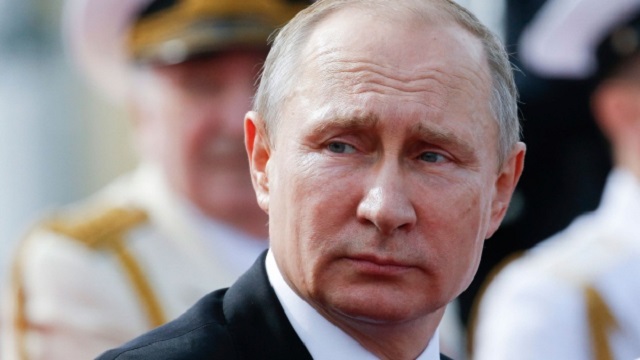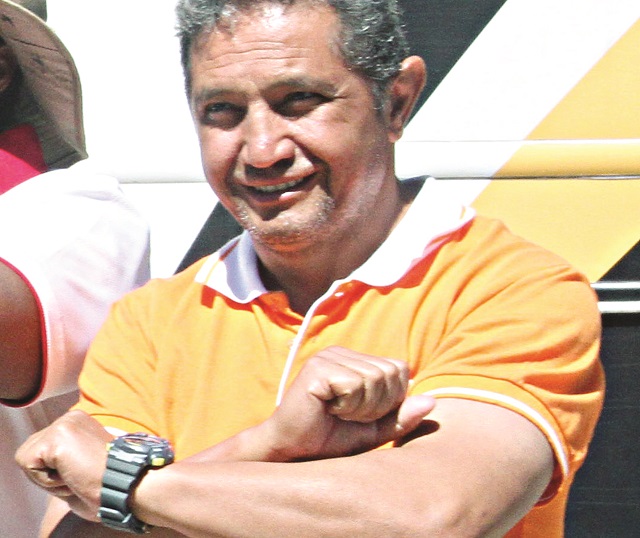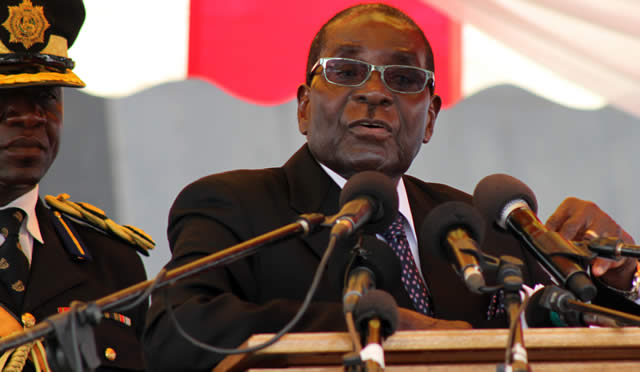Putin urges North Korea talks, says sanctions not working

Seoul — While condemning North Korea over its latest nuclear test, the leaders of Russia and South Korea seemed far apart on the issue of stepping up sanctions against the country.
Speaking after the meeting on Wednesday with South Korean President Moon Jae-in in the Russian port city of Vladivostok, Russian President Vladimir Putin called for talks with North Korea, saying sanctions were not a solution to the country’s nuclear and missile development.
Moon had urged Moscow to support stronger sanctions against North Korea, which conducted its sixth nuclear test on Sunday September 3, in what it claimed was a detonation of a thermonuclear weapon built for missiles capable of reaching the US mainland.
“We should not give in to emotions and push Pyongyang into a corner,” Putin said in a news conference after the meeting, held on the side-lines of a conference on economic development of Russia’s Far East.
“As never before everyone should show restraint and refrain from steps leading to escalation and tensions.”
Moon said the leaders agreed that reducing regional tension and “quickly solving” the security challenges posed by North Korea’s nuclear and missile programme were critical.
Ahead of his meeting with Putin, Moon said the situation could get out of hand if North Korea’s missile and nuclear tests weren’t stopped.
Moon urged Russia to back stronger sanctions including the cutting off oil supplies, but Putin expressed concern that such moves would hurt regular North Koreans, said Yoon Young-chan, Moon’s chief press secretary.
“Myself and President Putin share a view that North Korea has gone the wrong way with its nuclear and missile programme and that easing tension on the Korean Peninsula is an urgent issue,” Moon said during the news conference.
He complimented Putin and the Russian government over what he said were a variety of efforts to find diplomatic solutions to the North Korean problem.
In a telephone conversation with Putin on Monday before his trip to Russia, Moon also called for a ban on overseas North Korean workers, who are seen as a key foreign currency source for the North.
Putin told Moon that the North Korean problem should be solved diplomatically, according to Seoul’s presidential office.
Moon, a liberal who took office in May, had initially showed a preference for a diplomatic approach on North Korea, but his government has since taken a harder stance as the North continued its torrid pace in weapons tests. In an interview with the Russian news agency TASS on Tuesday, Moon said he believes now is not the time for talks and that it is important for the international community to strengthen pressure against North Korea.
Meanwhile, the US has asked the UN Security Council to freeze the assets of North Korea’s leader Kim Jong-un and slap an oil embargo on the country in response to Pyongyang’s sixth and most powerful nuclear test.
A US-drafted resolution circulated on Wednesday also called for banning textile exports and ending payments made to North Korean labourers sent abroad, further depriving the Asian country of revenue to pursue its military programmes.
The draft text comes two days after Nikki Haley, the US ambassador to the United Nations, called for the “strongest possible measures” to be imposed on North Korea.
Haley said on Monday that the US was seeking a vote on the new sanctions on September 11. However, Russia’s UN Ambassador Vassily Nebenzia has said this might be “a little premature.”
The proposed resolution takes aim directly at the leadership in Pyongyang with a freeze on Kim’s assets, as well as those of the ruling Workers’ Party of Korea and the government of North Korea.
Kim would be added to a UN sanctions blacklist that would subject him to a global travel ban, along with four other senior North Korean officials, according to the draft.
It was not immediately clear if the draft resolution had the support of North Korean ally China.
Rosiland Jordan, reporting from the UN headquarters in New York, said the draft, which has “raised eyebrows”, was likely to meet resistance from China and Russia. — Al Jazeera











Comments